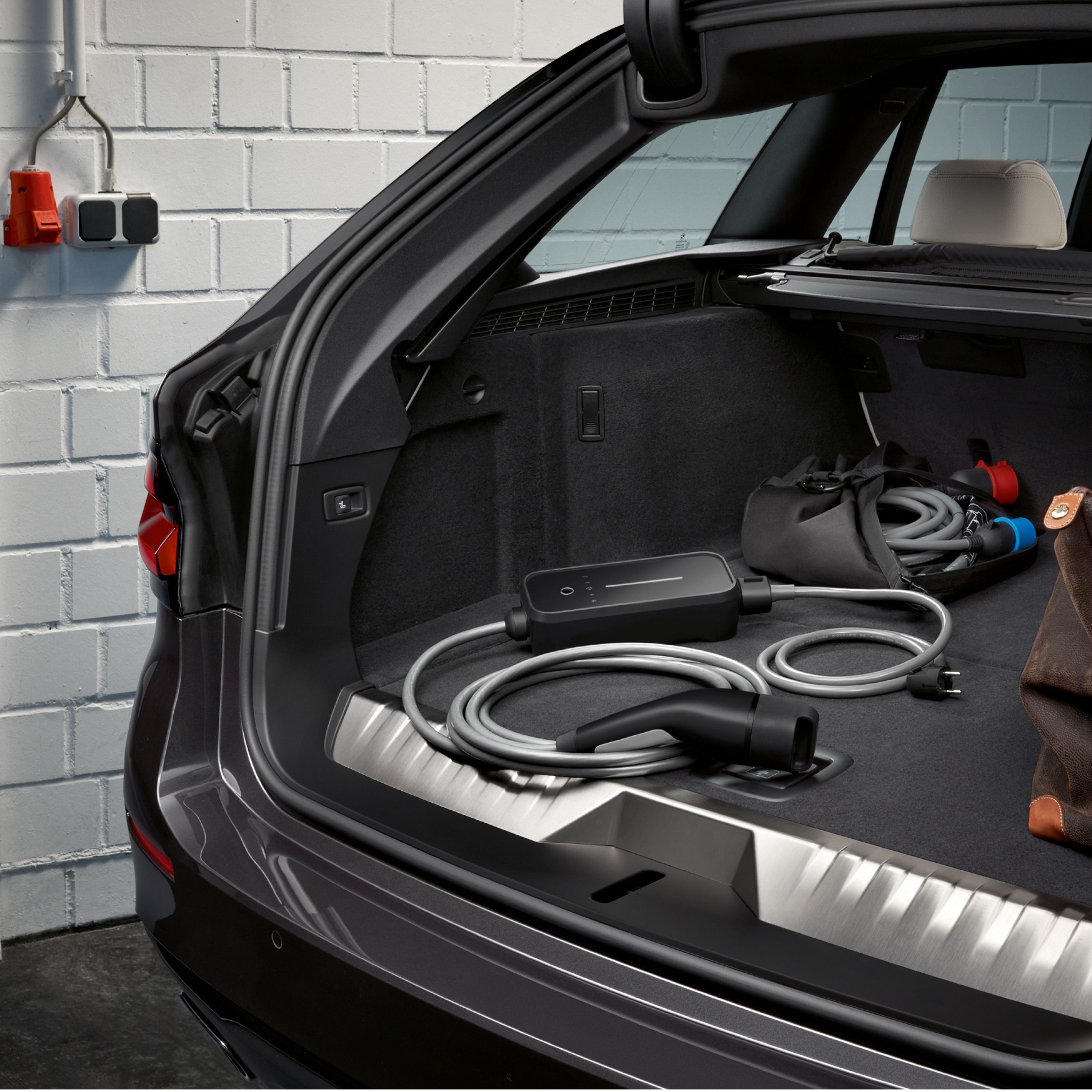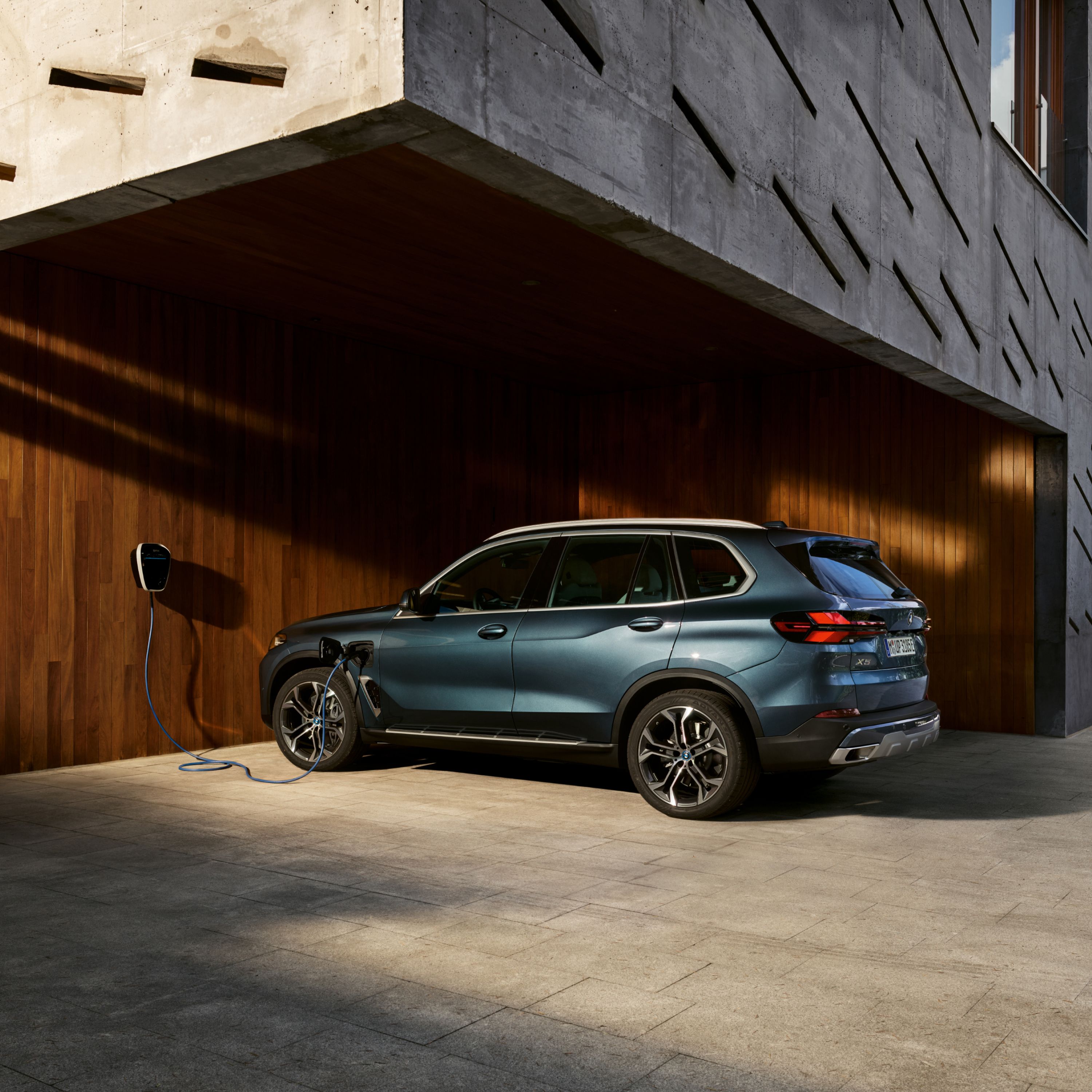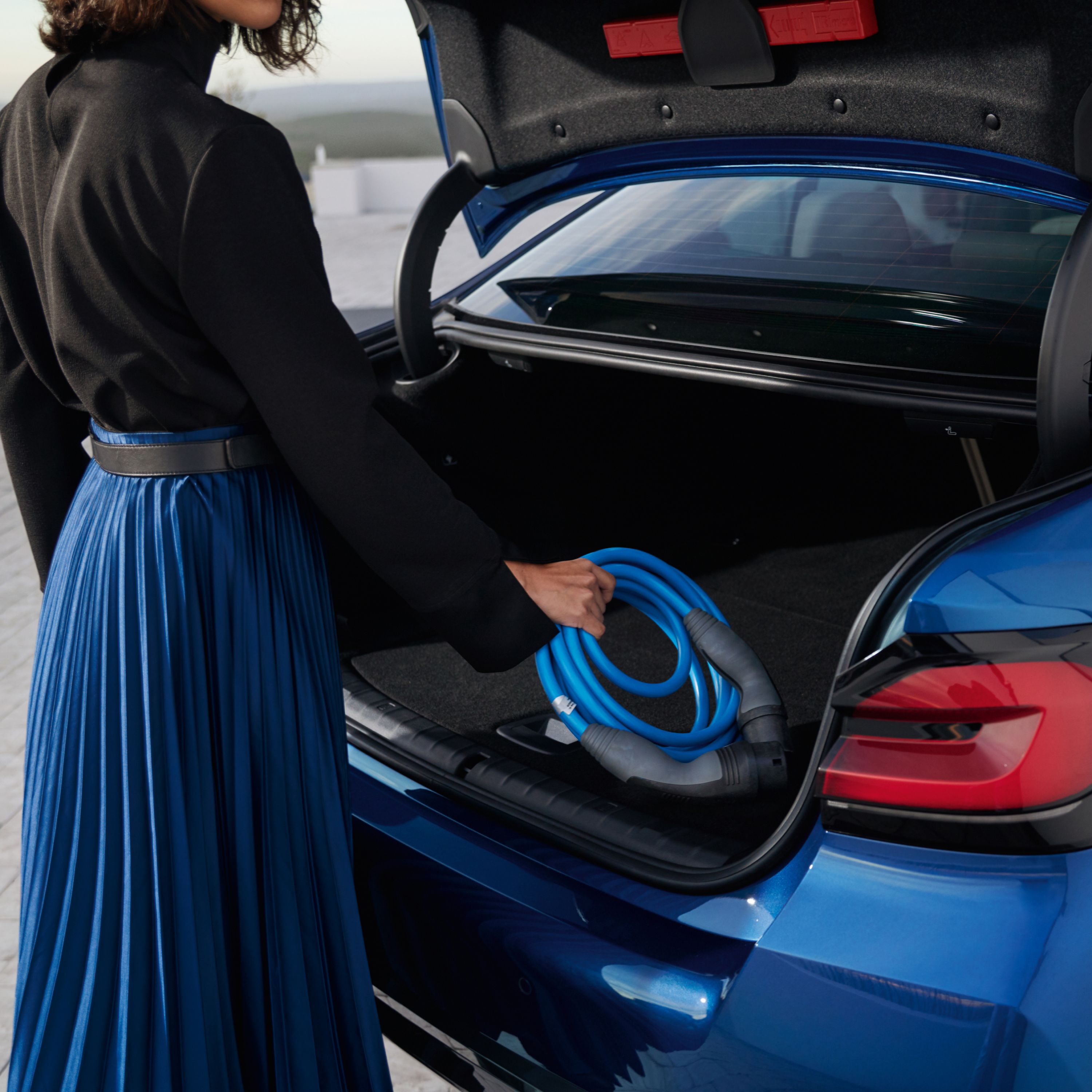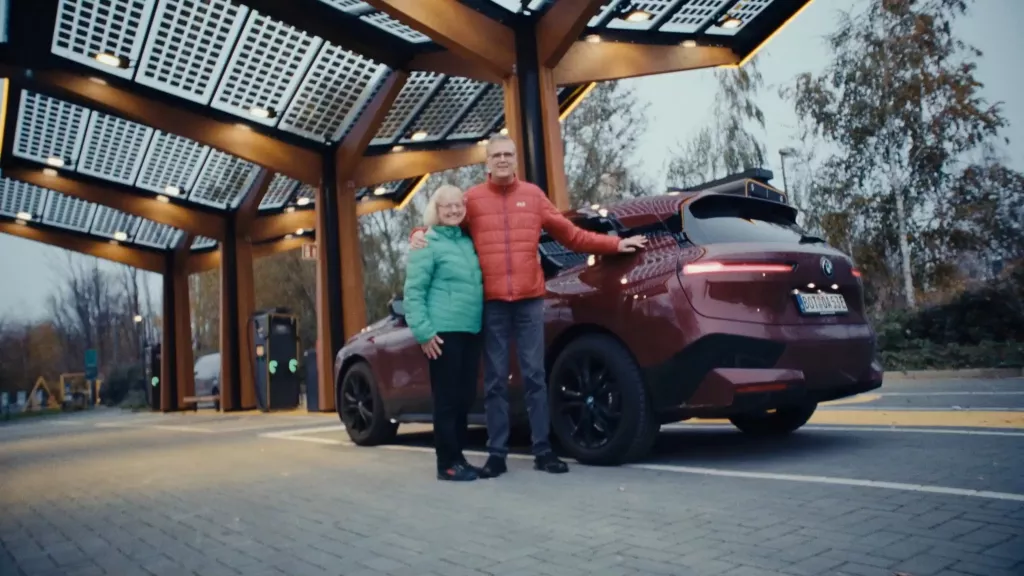BMW X1 xDrive30e: Fuel consumption, combined WLTP in l/100 km[1][3][4]: 0.9–0.7; CO2 emissions, combined WLTP in g/km[1][3][4]: 21–16; Energy consumption, combined WLTP in kWh/100 km[1][3][4]: 18.2–16.8; Electric range, WLTP in km[1][2]: 77–85
Provided technical data are measured according to the WLTP, not NEDC.
Charge with peace of mind: simply, any time and any place. Electric cars and plug-in hybrids herald a new kind of mobility that is both efficient and convenient. So now you can drive without a care every day and on longer trips, thanks to flexible charging options and innovative charging technologies. Either quickly on the go or conveniently at home. Find the charging solutions that best suit your lifestyle.
CHARGING SOLUTIONS FOR YOUR ELECTRIC CAR.
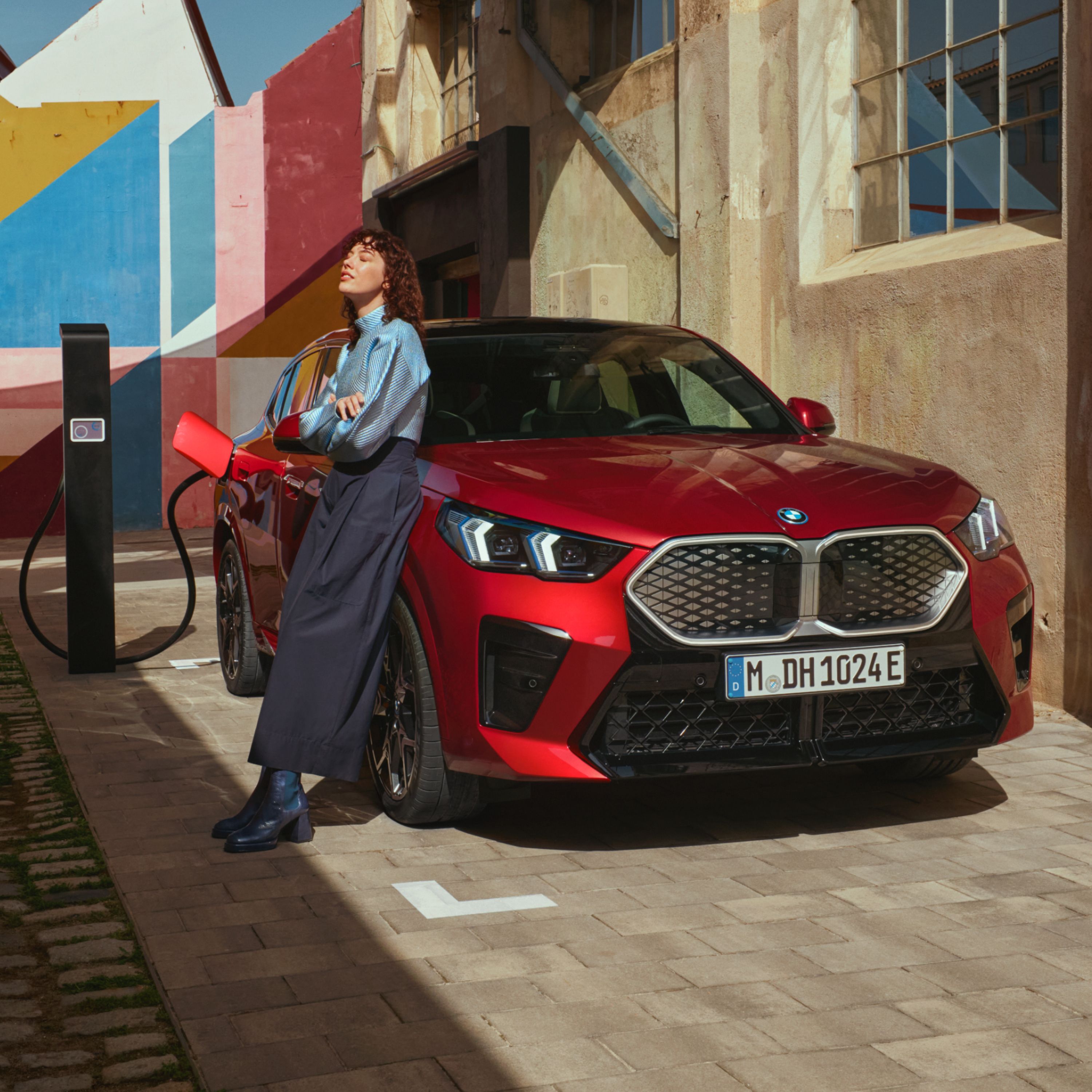
CHARGING ON THE GO.
Thanks to our extensive charging solutions, you'll also always find the right charging solution near you for your electric car or plug-in hybrid.

CHARGING AT HOME.
You can charge your electric car or plug-in hybrid most conveniently and comfortably at home. Conveniently and at your chosen charging speed using a BMW Wallbox or the BMW Flexible Fast Charger at a high-power or domestic socket outlet. Find out more about the practical solutions that BMW offers to charge your electric car at home.
BMW CHARGING TECHNOLOGIES AND PRODUCTS.
THE CHARGING TIMES OF ELECTRIC CARS.
Charging your electric car at high-power charging stations is the fastest method. Thanks to their high charging power, these stations offer very short charging times. With the BMW Wallbox or BMW Flexible Fast Charger, a BMW i5 can be fully charged conveniently at home in 8:30 hours.
*350 kW charging stations may not be accessible in every market.
EVERY JOURNEY TAILORED TO YOUR INDIVIDUAL NEEDS.

Your car charges, you spend the time as you wish.
It’s entirely up to you which charging stops suit you best.
Because you decide what you’d like to do while the car is charging. Sip a coffee perhaps, enjoy a lovely view, or do some shopping? We provide all this information and more for various charging stations.
PROBLEMS AND SOLUTIONS.

THE COST OF AN ELECTRIC CAR.
What does it cost to charge an electric car? Save money with lower service costs and lower taxes. Are there subsidies or incentives for electric cars? Find out if an electric car makes sense for you.
HOW MUCH ELECTRICITY AN ELECTRIC CAR NEEDS.
The power consumption of an electric car depends on various factors. The outside temperature and your own driving style – your average speed, for example – play a decisive role here. The costs involved depend on the consumption of the electric vehicle, the selected charging tariff, and the charging location.
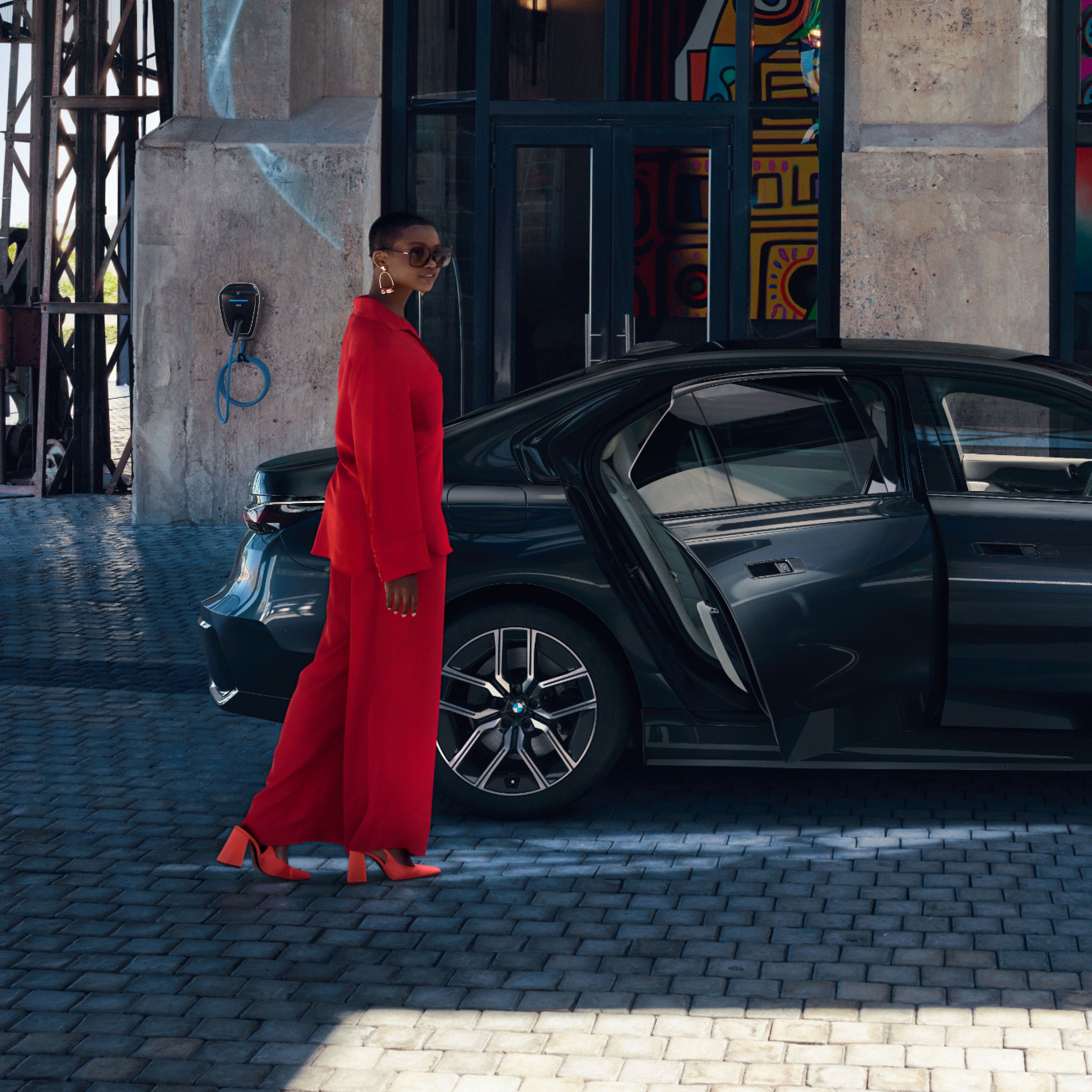
YOUR EXTENDED CHARGING NETWORK.
BMW Destination Charging aims to expand the charging options available to our customers. With a large number of charging points in 50 countries. Conveniently make the most of these exclusive charging options at your destination, thanks to many participating premium partners, such as hotels, restaurants, golf clubs, etc. While you enjoy your stay, your BMW is being charged. Conveniently find your premium charging option using your navigation system or your My BMW app. Become part of a worldwide charging network on Saad.Shaikh@bmw.com.
FOR CUSTOMERS BY CUSTOMERS: ELECTROMOBILITY IN EVERYDAY LIFE.
"We never regretted it."
Watch the video to learn how difficult longer journeys with an electric car used to be. And how conveniently and effortlessly BMW customers charge their electric vehicles today. Thanks to routes optimised for charging and additional functions that support you on your journey.



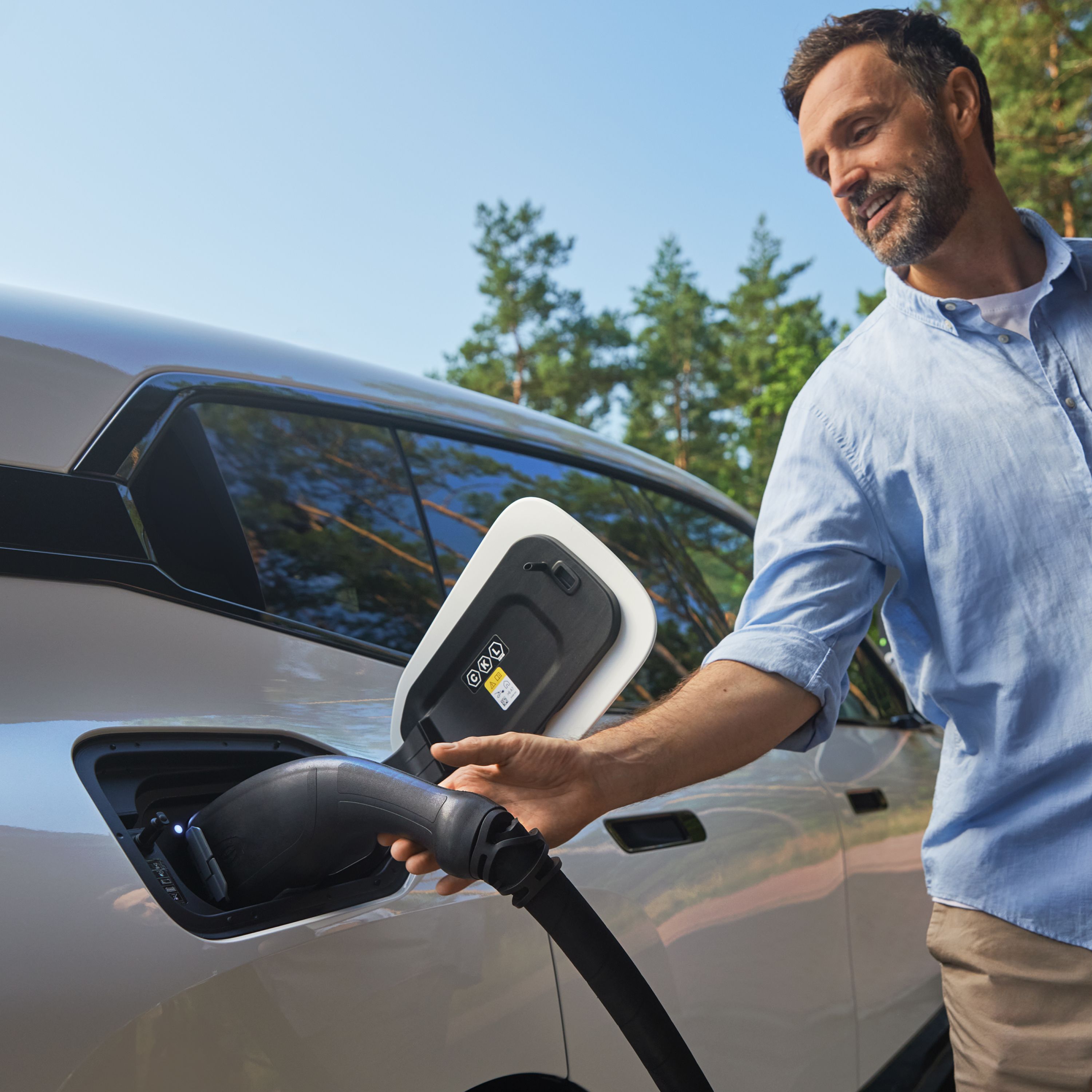
OPTIMISING THE LIFE OF YOUR ELECTRIC CAR BATTERY.
The service life of a high-voltage battery can be affected by your own usage habits. Your high-voltage battery should mainly be charged at a low charging power at AC charging stations or at a wallbox. For general use, it makes sense to run your car with a battery charge of between 10% and 80%. You can set a charging target of 80% for this. An efficient and anticipatory driving style also helps to increase the range of the battery and optimise its service life.

HOW TO POSITIVELY IMPACT THE SERVICE LIFE OF YOUR ELECTRIC CAR BATTERY.
Find out how the battery and electric motor of an electric car work. How you can positively influence the life of the high-voltage battery. And how quietly and powerfully an electric car accelerates and cleverly recovers energy when you brake.
FREQUENTLY ASKED QUESTIONS.
Fuel consumption and CO2 emissions.
BMW X1 xDrive30e: Fuel consumption, combined WLTP in l/100 km[1][3][4]: 0.9–0.7; CO2 emissions, combined WLTP in g/km[1][3][4]: 21–16; Energy consumption, combined WLTP in kWh/100 km[1][3][4]: 18.2–16.8; Electric range, WLTP in km[1][2]: 77–85
Provided technical data are measured according to the WLTP, not NEDC.
[1] Official data for fuel consumption, CO2 emissions, power consumption and electric range was determined in accordance with the prescribed measuring procedure and corresponds to European Regulation (EC) 715/2007 in the applicable version. For ranges, data determined as per WLTP takes into account any optional equipment (available on the German market in this case). For vehicles that have been newly type approved since 1 January 2021, only the official data according to WLTP exists. In addition, NEDC values are deleted from the certificates of conformity as of 1 January 2023 by EC regulation 2022/195. For more information about NEDC and WLTP measuring procedures visit www.bmw.com/wltp
Further information about fuel consumption and official model-specific CO2 emissions of new passenger cars can be found in the "Guideline for fuel consumption, CO2 emissions and electric power consumption for new passenger cars", available free of charge at all points of sale, at the Deutsche Automobil Treuhand GmbH (DAT), Hellmuth-Hirth-Str. 1, 73760 Ostfildern-Scharnhausen, Germany, and under https://www.dat.de/co2/.
[2] Range depends on various factors, in particular: individual driving style, route characteristics, outside temperature, heating/air conditioning, pre-conditioning.
[3] Performance data of petrol engines apply to vehicles using RON 98 fuel. Fuel consumption data apply to vehicles using reference fuels in accordance with EU Regulation 715/2007. Unleaded RON 91 and higher with a maximum ethanol content of 10% (E10) may also be used. BMW recommends RON 95 fuel. For high-performance automobiles, BMW recommends RON 98 fuel.
[4] For plug-in hybrid: Weighted, combined (EC AC Charge Weighted)

